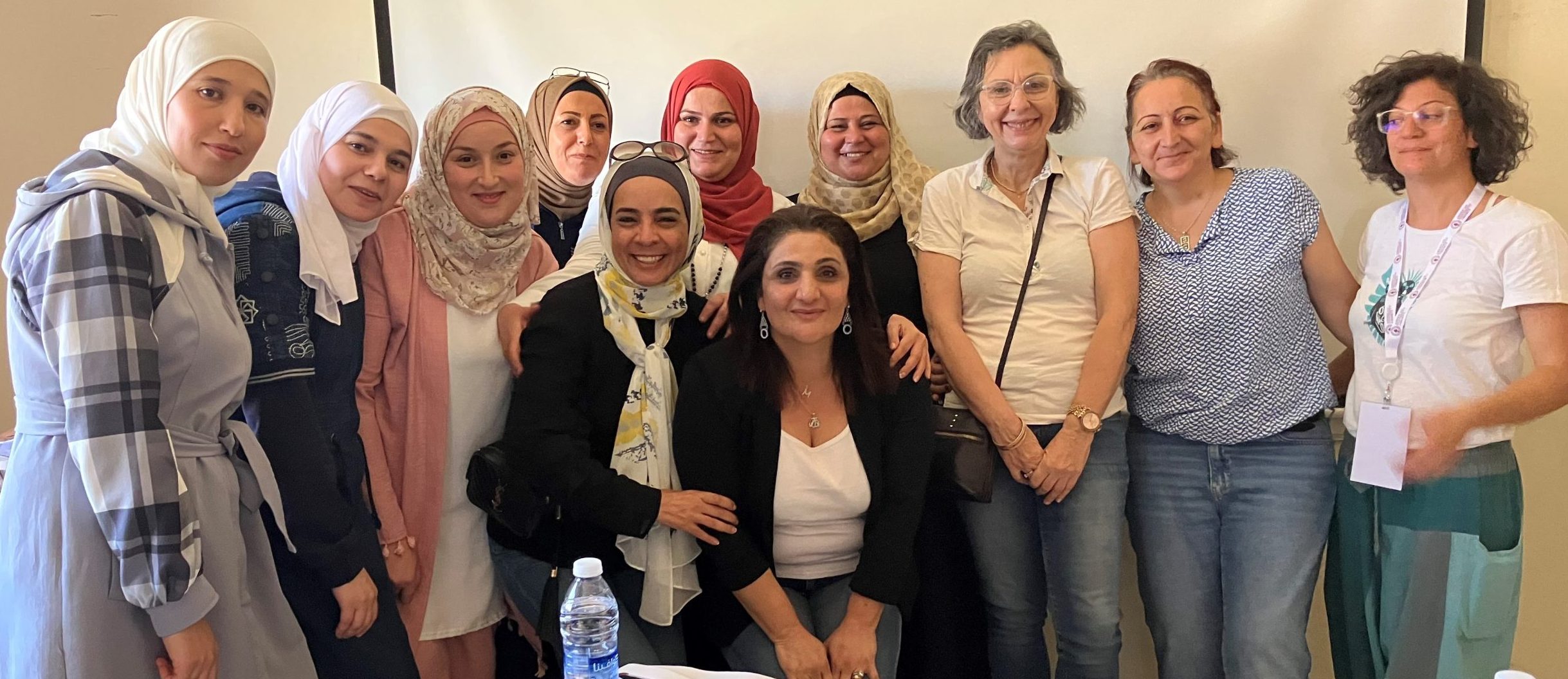
Empowering women in healthcare: A community-led initiative for resilience and integration
In Lebanon, the healthcare sector faces significant challenges in regions with high concentrations of Syrian refugees. Peripheral areas grapple with limited central regulatory oversight and a mix of authorized and unauthorized healthcare providers. To meet the growing demand for services, stakeholders increasingly rely on Syrian refugee female health workers (this paper explores their gendered experiences). These women work informally, either as volunteers or in unauthorized institutions, providing essential healthcare services to the refugee community.
What problem is being addressed?
Informally-employed female refugee healthcare workers face numerous challenges, including low wages, lack of legal protection, gender biases, and heavy workloads that strain their work-life balance. In addition, they experience isolation, stigma and discrimination from the host community and are often unfairly blamed for labour market distortions (more on the women’s experiences in this paper). This case study from the ReBUILD team in American University of Beirut explores their journey in collectively identifying solutions through participatory action research, particularly the process of establishing and operating a support group to empower women working in the informal sector in their professional and family roles.
What did we do?
Eight Syrian refugee women – all mothers and primary earners living in Majdal Anjar, Barrelias, and Aarsal – engaged in two participatory action research (PAR) workshops. In the first, they identified and rated professional, family and personal challenges. In the second workshop, they collectively selected the creation of a support group as the intervention to improve their and their peers’ work and life conditions (more on this process in this blog post). During the intervention, they attended four reflective meetings with researchers.
The community-led support group, Working Women, was formed to empower women engaged in paid activity, improve their work and life conditions and enhance their well-being. Supported by the local NGO, Women Now, which provided premises, logistical support and mentorship, Working Women has grown into an independent initiative.
Working Women established bylaws defining its mission, vision and values, focusing on three key areas:
- Organization of cooperative services by pooling resources and collective purchasing of goods and services
- Advocacy for the rights of female informal workers through various activities such as advocacy platforms on social media, participation in forums and community-building, including organizing events
- Entertainment activities to foster the mental well-being of working women and their families (more on the role of the group in the women’s lives in our blog post)
Maryam, an officer from Women Now, said: “I can say they are now an interactive support group.”
The steering committee, composed of nine women – six from the PAR workshops and three who joined later – received essential training in soft skills, including leadership and networking. Malak, a Working Women member, noted: “We feel we are benefitting because we can apply the training materials for our initiative. We are planning now for a cycle of technical training in project management.”
So far, Working Women has successfully recruited more than 200 women via an online campaign to establish its community base. Five women from the group participated in a short movie chronicling the journey of refugee informal health workers. Esraa, a member based in Aarsal, is replicating the Working Women concept in her village, establishing a local branch that duplicates all the activities and training.
Working Women’s inaugural project is a cooperative child daycare system that has begun serving children in Aarsal and Majdal Anjar. When faced with the legal impossibility of opening a childcare institution, the group pivoted to organizing a network connecting parents seeking childcare with women willing to babysit. They organized training sessions and developed guidelines for educational content and safety measures. Working Women is developing an advocacy plan for informal workers’ rights and is engaging in fundraising negotiations to secure resources to build and scale their support group until it can become self-financing.
Impact
Through empowerment, community improvement and awareness raising Working Women has the potential to achieve remarkable outcomes by improving the work and life conditions of working women. It has been transformative for the women leading the initiative. They have gained essential skills and knowledge through workshops and specialized training, such as leadership, networking and negotiating, bolstering their self-confidence and fostering their transformation into social activists. Noha, a Working Women member, remarked, “Since joining this project, my self-confidence has significantly increased, along with a newfound hope that I can truly impact my society.” (There’s more on this journey to empowerment in this blog post.)
Working Women’s impact extends beyond its members to the broader community. Through the organization of services and community awareness initiatives, the group fosters social cohesion and mental well-being, creating positive local change. Working Women sheds light on the challenges faced by women refugees in the healthcare sector, celebrating their contributions and advocating for their rights and recognition. Activities such as the short film chronicling their journey humanize these workers and highlight their vital role. Expanding Working Women to other villages, engaging with partners and donors, and sensitizing employers and community members fosters community cohesion and collaboration between different communities.
Further information
- Find more on this study and its outputs here.
- This blog post compares state-approved health facilities and the unauthorised centres mentioned in this case study – A Tale of Two Clinics
- There are other ReBUILD for Resilience case studies here
Image: The ladies of the Working Women group, staff from the Women Now centre and AUB & LSTM staff